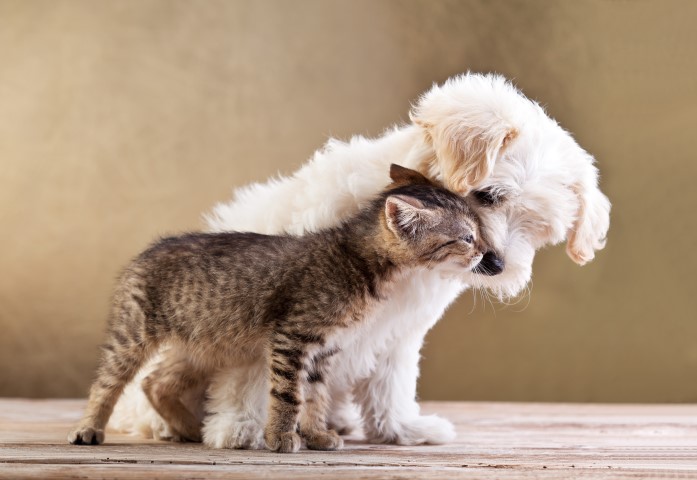DeWinton Services | Neutering
What Is Neutering?
Neutering is an elective surgical procedure performed on female cats and dogs. The procedure involves surgical removal of the testicles in order to sterilize and to promote key preventative health care for your pet. Neutering will not have any effect on your pet’s personality.
Benefits of Neutering
Neutering has numerous medical advantages including prevention and/or lower risk of both testicular and prostate cancer. Neutering your male pet can also provide behavioral benefits. After being neutered, your pet’s testosterone levels are decreased within their system. Because of this decrease in testosterone levels, neutering may reduce aggressive behavior. It may also decrease the likelihood of your pet mounting people, other animals, and other objects. Males are also less likely to mark their territory through urination and they may not wander off as much in search of a potential mate.
Finally, neutering your pet can also be financially beneficial as you will not have the responsibility for any unplanned litters or unexpected surgical costs.

Neutering Your Pet
We recommend neutering males between 7 and 12 months of age (depending on breed and size of dog). Neutering should only be performed by a licensed, experienced professional. At DeWinton Pet Hospital, Neutering is performed by Dr. Maros Pazej any day from Tuesday to Friday. Typically, your pet will go home that same day, unless indicated otherwise by one of our team members.
We would ask that you bring your pet to the clinic between 8am and 9am, unless another specific agreement has been made. At this time, we will go over the treatment plan with you for your pet’s surgery. This treatment plan will include total cost (with a low and high end that will be explained to you in detail), as well as consent forms to be signed.
We are proud to offer the option of using a laser for your pet’s surgery, which can be tremendously beneficial for your pet. These benefits include extreme precision, reduced risk of infection, less bleeding and pain, and less swelling which all come together to allow a quicker recovery.
Healthy Pets = Happy People!
When You Bring Your Pet Home
- Your pet will be a little dazed post surgery and will need some quiet time at home to recover.
- Your pet may sleep longer than normal after the surgery.
- Try to give your animal some space after the surgery. Your pet may not want to be handled as much as usual for a few hours after the surgery.
- You may want to keep your pet in a crate or a small room for their first night after the surgery.
- Your pet may not want to eat right after the surgery as a result of the anesthesia.
- It is normal post surgery for your pet to be a little off balance while the anesthesia wears off. If you notice that your pet is off balance, assist your pet moving in and out of your vehicle, and up and down stairs.
Questions
We will provide you with all of the information that you’ll need to care for your pet after the surgery. Should you have any concerns or questions we are happy to go over them with you so that your pet can have a safe and quick recovery.
